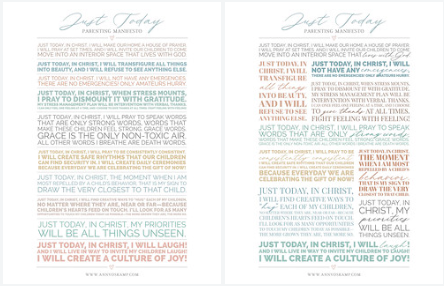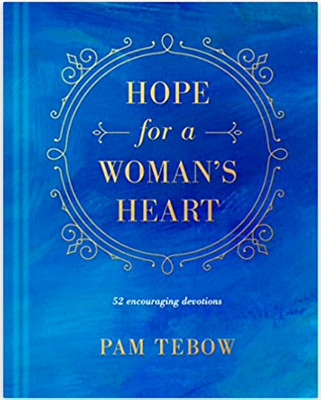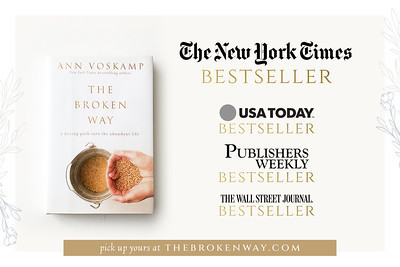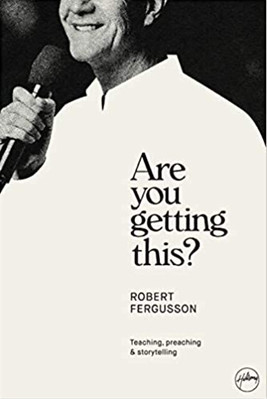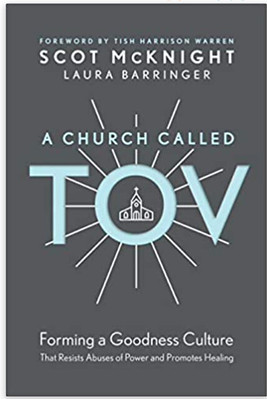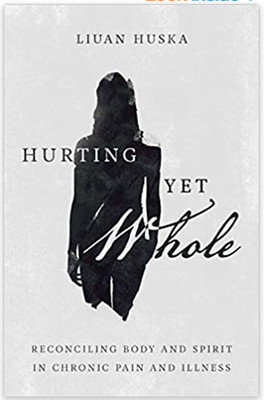Ann Voskamp's Blog, page 61
May 12, 2021
How to Forgive When the Unthinkable Happens
This woman is on a quest – a mission to write good-news stories in a bad-news world. Sarah Eekhoff Zylstra has spent the last four years searching out the places where God’s Spirit is doing something truly amazing, and she’s recorded it with all of her top-journalism-education, years-of-experience ability. From pastors praying their city peaceful to a young woman sharing dinner and Jesus with strippers to thousands of women cooking up hot food after hurricanes and floods, Sarah is sharing real, untold stories that will lighten your heart and remind you that God is still at work. Recently, she and her co-author Collin Hansen piled these stories of gospel-tied, gospelbound Christians into a book. It’s a grace to welcome Sarah to the farm’s front porch today …
guest post by Sarah Eekhoff Zylstra
It took five hours for someone to pull together enough courage to tell missionary Gladys Staines that her husband and two young sons were dead.
Graham Staines, 58, had been working with leprosy patients in India since he was 24 years old. He cared for the sick, preached the gospel, worked on Bible translation, and tried to look after the neighboring poor while also running the leprosy home.
“When reporters asked whether she was angry, Gladys told them she wasn’t. Instead, she shared the gospel of Jesus Christ.“
He’d met Gladys not in Australia, where they were both from, but in India, where they were both working. The Staines were committed to staying in India as long as God wanted them to: their three children—born in Calcutta—learned to play cricket and spoke the native Odia language.
Every year, Graham gathered with other Christians in the small village of Manoharpur for teaching and fellowship. In 1999, he took his two sons—Philip, 10, and Timothy, 6—along with him. As they usually did on trips to primitive areas, Graham and his sons crawled into their station wagon to sleep for the night.
A few hours later, a mob of Hindu extremists, angry about Christian conversions, surrounded the vehicle.
Later there would be inquiries into and arguments over how closely the leader, Dara Singh, was working with an extremist group connected to the Hindu nationalist government. Over the past year, Christian persecution had ramped up dramatically; in 1998, more crimes were perpetrated against Christians than in the previous 50 years combined.
“I was first told that the jeep had been burned,” Gladys said afterward.
Five hours later, friends broke the news.
[image error]Joy Prouty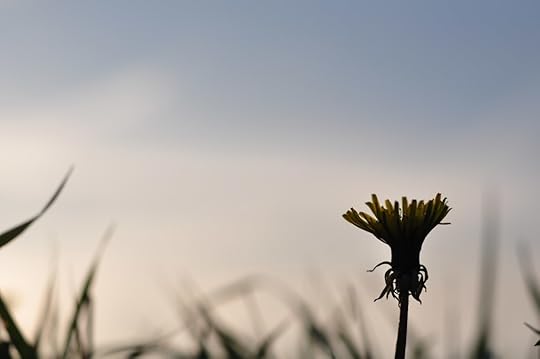
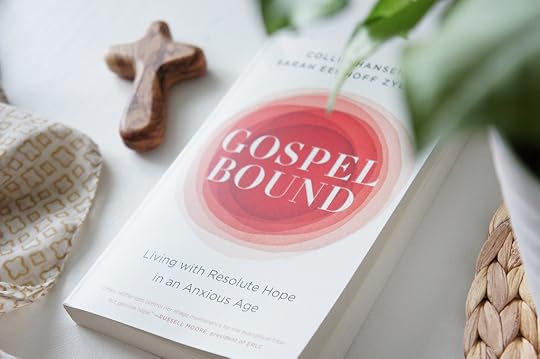 [image error]Joy Prouty
[image error]Joy Prouty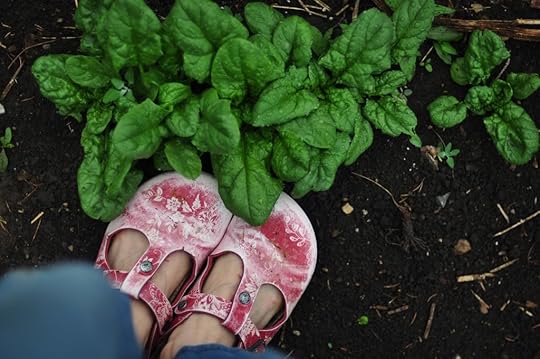 [image error]
[image error]
 Joy Prouty[image error][image error]
Joy Prouty[image error][image error]
“They were shaking like crazy,” Gladys said. “Finally, one of the women said, ‘Gladys, I don’t want you to be like a stone, but I want you to be strong for [her thirteen-year-old daughter] Esther.’”
Gladys knew then that her husband and sons were dead—but not yet how brutal the killings had been. The mob doused the vehicle with gasoline and lit it in the middle of the night while Graham and the boys were sleeping. When they awoke and tried to escape, the mob kept blocking the way, swinging sticks, breaking the windows, and deflating the car’s tires. When the charred bodies were recovered, all three were huddled together.
Gladys immediately found Esther and told her, “It seems like we’ve been left alone. But we will forgive.”
“Yes, Mummy, we will,” Esther answered.
“God enabled me to forgive, but it doesn’t take away the sadness and the grief that’s there.”
And they did. When reporters asked whether she was angry, Gladys told them she wasn’t. Instead, she shared the gospel of Jesus Christ.
“Of course, we are deeply shocked,” she said at the funeral. “We are deeply hurt…. And still my prayer and desire is that these people who took my husband’s life will be touched by that same love so that they will never do this to any other person.”
“I praise God that He chose my father, that He thought my father was worthy,” Esther told reporters at the funeral.
The news of their loving response headlined newspapers all over India—and then all over the world. Gladys and Esther drew attention again when they chose to stay in India—even though some tribal people hid Dara Singh for a year before he was caught by police.
Even though the Orissa High Court commuted his death sentence to life in prison and released eleven of his twelve accomplices.
Even though the Supreme Court upheld Singh’s commutation to life in prison by explaining that Singh was “teach[ing] a lesson” to Christian evangelists.
“It’s not a matter of moving on—it’s moving forward. It’s not a matter of saying time heals. Time of itself can’t heal, but God works through situations to bring joy out of sorrow.”
Through it all, Gladys kept right on working with the leprosy patients her husband had loved.
Eventually she’d be awarded both the Padma Shri—the fourth-highest civilian award in India—and the Mother Teresa Memorial Award for Social Justice.
“God enabled me to forgive, but it doesn’t take away the sadness and the grief that’s there,” Gladys explained in 2019, when a film about her family debuted in Australia. “It’s not a matter of moving on—it’s moving forward. It’s not a matter of saying time heals. Time of itself can’t heal, but God works through situations to bring joy out of sorrow.”
One spot of joy has been watching Esther, who studied to become a doctor, married, and had four children. (Gladys now lives close to their family in Australia.) Another source of joy has been setting up the 15-bed Graham Staines Memorial Hospital.
But her biggest reason for joy is seeing people come to faith in Christ. Graham “taught about Christ. He shared about Christ through the deaths, in a sense,” Gladys said.
“I have heard of many, many, many people who’ve said, ‘Their God is real. I want to be Christian.’ How many people will we see in heaven directly related to those events? We will never know. And I just praise God for that.”
Even for Christians, Jesus’s command to love our enemies seems impossible. How could Gladys and Esther spend years working with and raising money for the Indian people?
For that matter, how could the Amish community in Pennsylvania donate money to the widow and three children of the school shooter who killed five of their young girls in 2006?
How could Elisabeth Elliot love the Ecuadorian tribe that killed her husband, Jim, and take up his cause and take them the gospel?
“I have heard of many, many, many people who’ve said, ‘Their God is real. I want to be Christian.’ How many people will we see in heaven directly related to those events? We will never know. And I just praise God for that.”
This response—to work for the good of your enemy—is both baffling and beautiful.
And you can’t do it on your own.
“It was God who gave me that strength,” Gladys said. She held onto Romans 12:19, which says, “Vengeance is mine, I will repay, says the Lord.” She released her desire for justice to God so completely that she didn’t stress about the hunt for the killers, worry about the trial, or even read all the reports.
Loving our enemies doesn’t mean accepting injustice. It means we care too much about justice to trust it entirely to humans who don’t always catch the right people, try them fairly, deliver just sentences, or carry them out to completion.
While gospelbound Christians eagerly seek justice on earth, they ultimately trust in God’s justice in the new heavens and the new earth.
They may work doggedly for a better justice system, but they also know that when it fails, God will not.
We trust he will make all manner of wrong right in his time.
[image error]Journalists Sarah Eekhoff Zylstra and Collin Hansen Both grew up in Midwestern corn fields, traveled to the big city of Chicago to earn journalism degrees at Northwestern University, and honed their craft at Christianity Today. Today, they work to provide trusted and timely, winsome and wise resources to Christian leaders and organizations around the world through The Gospel Coalition.
If you feel dragged down by negative news headlines, Gospelbound: Living with Resolute Hope in an Anxious Age offers a compelling antidote: the stories that didn’t make it into your social media feed.
While it’s true that we’re living in an increasingly secular culture, the church has been here before. In fact, she’s been operating in the margins almost her entire life. That makes the New Testament’s practical instructions to Christians in a hostile culture – care for the weak, love your enemies, set another seat at the table – enormously practical, relevant, and hopeful. Zylstra and Hansen paired them with encouraging and inspirational stories of gospelbound Christians who are living those instructions out in real life.
[ Our humble thanks to Multnomah for their partnership in today’s devotion ]
[image error]May 10, 2021
How to heal your hurried heart
Before there were books for either of us, we were simply two heart-sisters who had a lot in common. We loved words and Jesus. And we were both farm wives married to men who raised crops and pigs. I once grabbed Jennifer Dukes Lee’s hand and told her I believed in God’s gifts in her, and I prayed for His words through her to keep coming. She’s a pure-hearted, soul-encouraging woman after God’s own heart, and reading her always makes me read more of Christ everywhere. Her newest book, Growing Slow, is maybe what we all need in this world of hustle and hurry. It’s a humbling grace to have Jennifer step off her farm porch and straight onto ours…
guest post b y Jennifer Dukes Lee
Growing up in rural America, my first job wasn’t “waitress” or “lifeguard.” It was “rock picker.”
The work was about as glamorous as it sounds.
A local farmer would round up a bunch of kids to come out to his farm and “pick rock.” It was a funny phrase, now that I think of it, because we didn’t pick just one rock. There were hundreds.
“Before we rush back into our old, hurried patterns, let’s allow God to “pick rock” in us.“
We’d sit on a flatbed trailer behind the tractor, with our feet dangling over the edge. And off we went! The farmer would drive his tractor straight into the field, pulling us behind on the trailer as we jostled with every bump.
If you saw a rock, you hopped off, ran to grab it, and hollered “Rock!” before tossing it onto the trailer. The shout was a sort of warning, so the others would jump off to avoid being clobbered in the head. (Clearly, we had high workplace safety standards.) Our little team of rock pickers covered miles a day.
The next spring, we’d be picking rock in the very same fields, because new stones always emerged. Any farmer will tell you that rocks are a nuisance, but they simply must be dealt with. If they are left in the fields, stones can harm farming equipment come spring.
You may wonder how rocks keep emerging. There isn’t some rock fairy dropping stones onto fields to annoy farmers. Instead, stones are heaved forth in the frost/thaw cycle, when winter gives way to spring.
My husband, a farmer, calls the process “a healing of the land.”
Isn’t that a beautiful way of thinking about it?
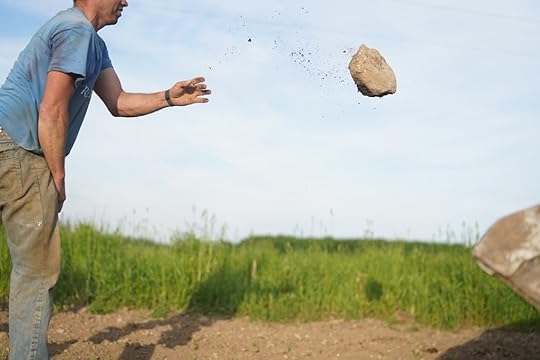
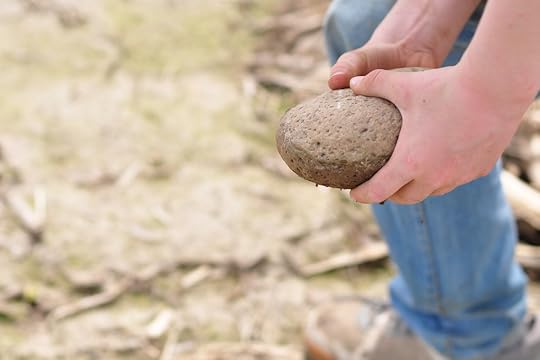
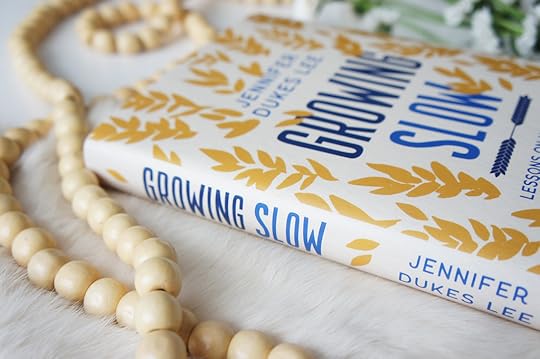
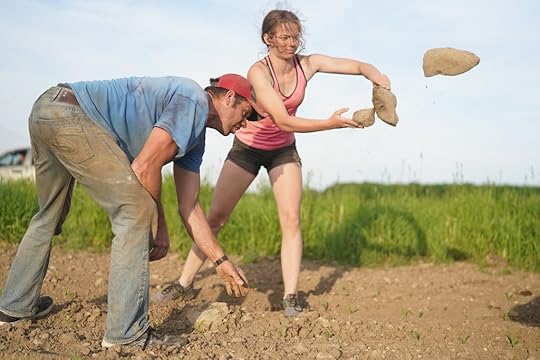
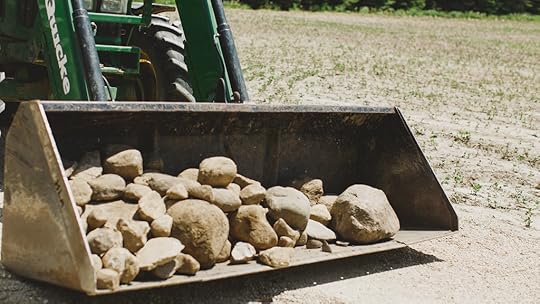 Joy Prouty
Joy Prouty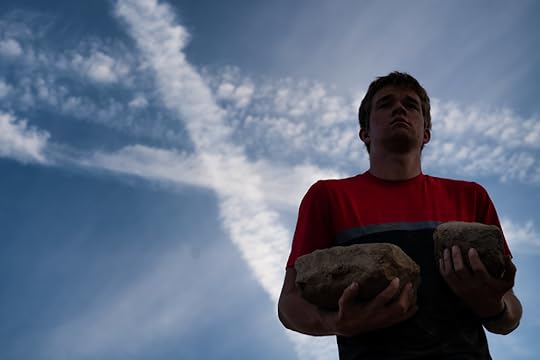
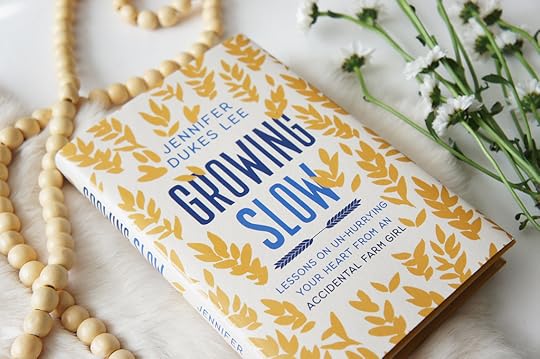

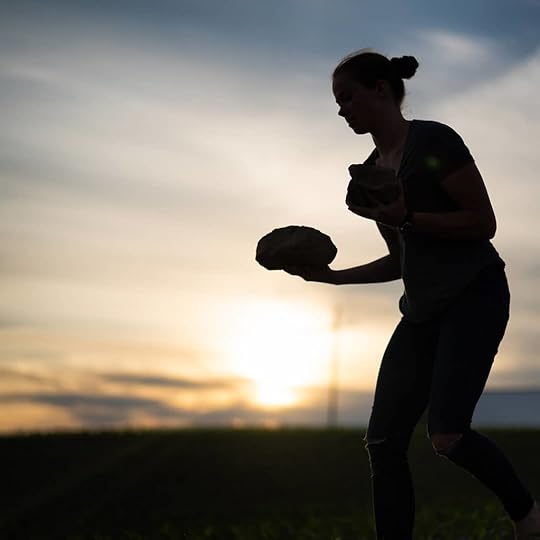
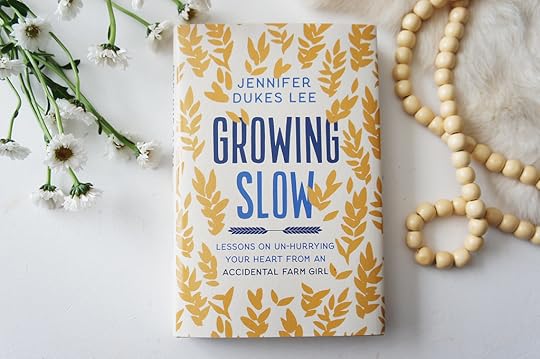
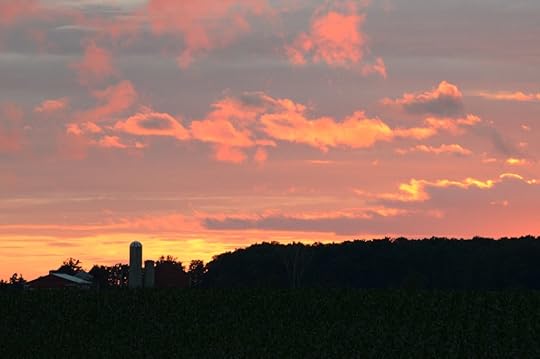
But the land can’t do this healing work without the cold of winter.
“We all need winter seasons to unearth the burdens we’ve been carrying around in the soil of our hearts.“
I think the same is true of us. We all need winter seasons to unearth the burdens we’ve been carrying around in the soil of our hearts.
We might know theoretically that God can use slowed-down seasons to bring healing in us. But honestly, who wants to live through a winter season of the soul? Most of us would rather put the hand to the plow and push past winter, hoping our “rocks” will sink deep into hiding.
But if a farm needs winter to heal, I think people do too.
In a way, all of us have been living through a prolonged winter season — for over a year now. (Hello, Pandemic.) During this season, we have had a plain, unobstructed view of ourselves. Lockdown exposed our coping mechanisms, along with the things we secretly worshipped. We saw the things that have kept us from slowing down our entire lives: productivity, busyness, comfort, achievement.
The world is beginning to open up for some of us who are reading these words today. But before we rush back into our old, hurried patterns, let’s allow God to “pick rock” in us.
We all have rocks, don’t we?
Stones are the unseen burdens we haul around in our hearts like unwanted baggage.
My stones are heavy and jagged and ugly:
“Think of your heart as a field. If Jesus were standing with you on the edge of that field today, I imagine He would leave no stone unturned.“
Hurtful words spoken over me when I was a child.
Deep-seated beliefs that I’ll never really be enough.
The secret fear that I’m not lovable.
Past sins I drag around with me because I don’t fully accept forgiveness or believe I’m worthy.
New, bad habits I pick up over time.
Coping mechanisms that numb me to pain.
A long history of unbelief and distrust that affects my relationship with God and with people.
These are my stones. They are not pretty.
I am good at keeping old stones buried. It’s easy: I’ll keep the hand to the plow so I don’t have to contend with any of it.
But hidden stones still cut your insides, a slow slaying of the soul.
What are the stones wounding your soul?
Just as winter “heals” the land, Jesus wants to heal us. Will we let Him? Could we, one day, look back on this prolonged winter season in our world, and declare that we were healed?
Think of your heart as a field. If Jesus were standing with you on the edge of that field today, I imagine He would leave no stone unturned.
There is no rock too big, too jagged, too heavy for Jesus. How do I know?
“Everybody is dealing with something. Everybody needs to get rid of stones in their fields.“
“And very early on the first day of the week, when the sun had risen, they went to the tomb. And they were saying to one another, “Who will roll away the stone for us from the entrance of the tomb?” And looking up, they saw that the stone had been rolled back—it was very large” (Mark 16:2–4 ESV, emphasis added).
Maybe you—like the women at the tomb—have asked yourself, Who will roll away this very large stone? I know a man named Jesus. He has come to retrieve your stone, and He is not intimidated by its size.
It doesn’t matter how old you are, how young you are, how spiritual you are, how successful you are, how sinful you are, how rich you are, how poor you are, how popular you are, how put together you are, or how broken you are.
Everybody is dealing with something. Everybody needs to get rid of stones in their fields.
And here stands Jesus, ready to handle any stone—no matter how deeply it’s buried, no matter its size, no matter its weight.
Slow down, my friend. Jesus has come to “pick rock.”
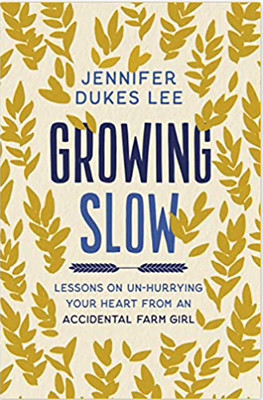
Jennifer Dukes Lee is the author of several books and Bible studies. She and her husband are growing crops, pigs, and two beautiful humans on the fifth-generation Lee family farm in Iowa.
When Jennifer finally gave herself permission to believe it takes time to grow good things, she found a new kind of freedom. Those lessons, learned on her farm, became her newest book, Growing Slow: Lessons on Un-Hurrying Your Heart from an Accidental Farm Girl. With eloquent truths and vivid storytelling, Jennifer charts a path out of the pressures of bigger, harder, faster, and into a far more satisfying way of living.
My friend and fellow farm wife Jennifer is giving you a special inside look at the free videos you’ll get when you purchase Growing Slow. She and her husband have created a small, humble sanctuary in their barn to receive the “stone burdens” of women on the Growing Slow journey.

May 8, 2021
Get What You Really Want for Mother’s Day & Get What You Really Need To Know About Mothering
H
onestly, you don’t have to know what you’ll do when the kids grow up, buy a Mother’s Day card for you, while they tell their friends, their therapist, and their kids that you got so much wrong.
You just have to know that you’ll humbly own it.
Because they aren’t wrong.

Favorite Home Dress: Tribe Alive


It’s tender and true: You could have held them longer after they grew too big for your arms: held space for their pain, held their eyes, held them up in relentless prayers. You could have said yes to more campfires, jumped more on the trampoline and been known more for your loud, rowdy laughter instead of being the ready critic. You could have asked more honest questions and lingered longer, simply honouring them with listening space. You could have said yes. And No. Both at the right time.
Where you tried and fell short, they now trip and fall and have bruises to prove it.
Much dysfunction is a function of denying brokenness. The madness of much dysfunction ends now, ends with our owning it. Yes, things were broken. And: All the brokenness can be the tender breaking open of a seed to grow better.
No matter your hidden regrets or their current age: You can tenderly own that you took some wrong turns and it’s never too late to simply turn toward the Light.
Life always turns on the turn.
“The work of every parent is to give the best they know how now — and the work of every child is to forgive their parents the best they can now.”And it’s worth writing down by the kitchen sink: Parenting is never about how your kids turn out. It’s always and only about how you keep turning toward your kids and their Maker.
It’s okay: Motherhood is never about training your children to be good so they won’t ever fall — it’s about letting them see you fall in love every day with a good God.
And even after you’ve fallen hard — they see you keep falling hard for God.
Simply: The work of every parent is to give the best they know how now — and the work of every child is to forgive their parents the best they can now. Our work will look different, but we both have growing work to do.
There is always grace coming to meet us.










I became a mother on the eve of Mother’s Day. I was a wide-eyed girl of 21. He was 4 weeks early. I wasn’t ready, he was tiny, a curled soul in my hand, and I had no idea how to unfurl him into man.
“Our nightmares end when we accept that where we are, can still be where dreams come true. To accept is to wake.”That boy who made me a mother now turns 25. I’ve now been a mother for a quarter of a century. I had no idea I’d end up becoming the mother of one and a half dozen kids — which is a tongue-in-cheek way of saying I’m the mother of 7 kids — while saying that a whole lot of days that felt more like mothering 18 kids.
I have lived through days —countless of them — that were unashamedly our actual dreams come true — and I have lived through honestly our very worst nightmares.
Prodigals. Rejections. Diagnosis. Needles and daily injections. Constant meds. ICUs. Self-harming. Open heart surgeries. More than once. Mental health fractures. Mine and theirs. Car accidents. More than once. Drop outs. More diagnosis. Sleepless nights. Prayer pacing and soundless tears at 3 am. More than once.
Seven miraculous kids has meant non-stop riding seven roller coasters with all of the wondrous, exhilarating heights — and heart-dropping plunges.
“Motherhood is never about training your children to be good so they won’t ever fall — it’s about letting them see you fall in love every day with a good God.”Life always comes in waves, the cresting and the crashing — and we just have learn how to accept the way of the waves.
Our nightmares end when we accept that where we are, can still be where dreams come true. To accept is to wake.
All l needed to know about mothering I learned that first long, sleepless night of being a brand new mother.
It wasn’t that wails of the brand new baby that kept me awake. He barely stirred. I stared at him for hours, as dusk deepened into dark and his face was lit by the hospital hallway, him swaddled in the bassinet rolled up to the side of my bed. I couldn’t turn away from his newborn sleep, couldn’t hardly breathe through the mounting realization that I could wreck this tiny human being entrusted to my blatant inexperience.
My terror was kinda palpable: How do you mother and raise an actual living human being?














I’d opened up the most ancient book and traced a trail of words that had been worn down as tried and found true for centuries:
“God gently leads those who have young, because He is leading us on a journey — that journeys with our kids who are on a journey of their own.”“He carries them close to his heart
and gently leads those that have young.” Isa. 40:11
In the shadows of a dark room of a neonatal ward, I’d laid there wide awake with The Mother Epiphany:
You need to carry out your mothering the best you can, but the Shepherd carries your babies close to His heart, and He is the one responsible for carrying your babies home. God is ultimately the shepherd of our children, we just have to keep faithfully carrying on.
God gently leads those who have young, because He is leading us on a journey — that journeys with our kids who are on a journey of their own.
No parent gets to decide a child’s outcome — we only get to decide to always come alongside our child. We only get to offer our child with-ness and witness on their way — we don’t get to determine their way.
We can only relentlessly pray that they will choose the only One who is the only Way.
“No parent gets to decide a child’s outcome — we only get to decide to always come alongside our child.”It’d take me years to realize:
Parenting 101:
No shock, no shame, no matter what they do.
Only sharing the sheltering arms of the Shepherd.
Parent or child, we are no different, we are all wandering sheep, easily lured, who all need the rescue of the Shepherd from the lostness of lesser loves into the embrace of the greatest Love, Love Himself.
When a mother stops seeing herself as the shepherd who needs to be good enough get her child safely Home, but instead sees her and her child both in need of a Good Shepherd, this is how she always stays safe in the home of God.
“Mother, in the arms of your Father: You are not lacking. You lack nothing.You. do. not. lack.”
When I’d turn toward the expanse of dark hospital room windows, there was my reflection, a mother desperately fearing she was not enough, backlit by the glow of hospital hallway , and there was clear Heart of the Father:
Mama, trust Me:
You are not lacking.
I brimmed….. dropped my eyes, shook my head…..
But there is the Comfort of the Father, gently gathering up all the Mothers of children, hushing away all the fears with the song they know by heart:
The LORD is my shepherd, I lack nothing. Ps. 23:1
Mother, in the arms of your Father:
You are not lacking.
You lack nothing.
You. do. not. lack.
Mother, in the arms of your Father,
no matter how things unfold with your children:
You are Beloved.
Live out of your Belovedness,
Parent out of your Belovedness,
Love out of your Belovedness —
because your perfect Belovedness kicks all fear out to the curb.









On the eve of Mother’s Day, my hours old newborn son slept soundly, and I cried quietly in the arms of my Father and it would take me a long quarter of a century and 7 kids later to know it fully:
“God’s a perfect father with His own prodigal kids — and He only has perfect grace for prodigal parenting of imperfect, glorious kids.”God’s a perfect Father with His own prodigal kids — and He only has perfect grace for my prodigal parenting of these imperfect, glorious kids.
It would take me all this quarter of a century of mothering to find the relief of it:
If we don’t turn inward — it all turns out.
Turn outward — toward your children, and toward your Shepherd — and in the end, it will all turn out.
You will get things wrong, the prodigal parent with prodigal kids, and you and the kids will both make wrong turns, only to turn and find the arms of the Shepherd who left everything to come and find and gently lead all the way through.
A Shepherd who whispers to each of us, New Mother, Young child, Old Mama, Adult Child, Wounded and Wandering and Wondering, no matter where any of us are on our own journey:
Beloved. All will be alright, all will be all redeemed, all will be all restored.
“Beloved. All will be alright, all will be all redeemed, all will be all restored.”So honestly? The truth is, no matter what anyone says about you, to anyone, you don’t have to know how any of the journey will go, but you can quietly forgo buying any Mother’s Day card and simply make one of your own — for you, for your own mother, for your own child, one that simply transcribes the heart of the Father right now:
Beloved,
I am your Shepherd &
You are mine.
You are not lacking,
You Lack Nothing.
You are not lacking.
You are Beloved.
This Mother’s Day Get What You Really Want for Free:A Truckload of Grace, A House of Prayer, a 10 Point Parenting ManifestoAll Three Free Gifts have profoundly impacted my 25 years of parenting — so I just really wanted to wrap it all up & give to ((YOU)) as a free gift from my mama heart to your brave one — or for your own mother — a deeply meaningful gift that you don’t have to go out anywhere for, or spend any money on — kinda perfect in strange days like these — and it’s exactly what every mama want the very most: a 10 Point Parenting Manifest for JOY (regardless the age of your kids), everything you need to literally make your house into a house of prayer (especially needed in days like these) — and a printable that gives every mama what she wants most: a Truckload of Grace.
What you really want most this Mother’s DayClick Here for all you need for the (FREE!) perfect way to Disappointment-Proof this Mother’s Day


May 3, 2021
How to keep choosing contentment by faith and not feeling
Pam Tebow has a passion for helping women find hope in God through all of their challenges in life. She encourages us to believe that God cares about our pain and sorrow and provides grace-filled, life-altering hope that will not disappoint. Pam never expected her family’s name to be known around the world, but when her youngest son, Tim, won the Heisman Trophy, Pam was featured in national media for her decision to choose life for Tim against doctor’s advice. It’s a grace to welcome Pam to the farm’s front porch today…
The word contentment often causes eyes to roll and ears to tune out because it’s so convicting.
I didn’t choose to sign up for “contentment class,” but I was forced to join a few weeks into my marriage.
“How do we count our blessings rather than list our wants?”Bob and I were grateful to find an inexpensive, convenient place to live while we worked and attended grad school. We enjoyed inviting other students to our little apartment for dinner, until one asked, “How can you be content to live in such a tiny apartment?”
How can I be content? I wondered. Do you ask yourself the same question?
How can we keep from envying what others have?
How do we stop complaining about what we don’t have?
How do we count our blessings rather than list our wants? How can we be content when we can’t even turn on a device without seeing an enticement to covet something we don’t own?










The apostle Paul also attended “contentment class” while under house arrest in Rome. In his accelerated classes, 2 Corinthians 12:10 says he learned to be content with weaknesses, insults, distresses, persecution, and difficulties—for the sake of Christ.
“A contented person understands that the things of this world are here when we arrive and are left behind when we exit this life.”When I read this verse in those early years, I remember thinking that my small apartment didn’t belong in the same category as persecution. But I was in the beginner’s class, taking my first steps on the path to learning contentment. The road ahead, however, would include a crash course in challenges not listed on my syllabus.
Why do we need to deal with hard things? Because issues we can’t solve in our own strength cause us to “seek the Lord and His strength” (Psalm 105:4).
Our young athletes claimed the verse “I can do all things through Christ who strengthens me” (Philippians 4:13, nkjv) for athletic endeavors but later learned they also needed strength to be content with both the wins and the losses of life.
Read what Paul writes immediately before this famous verse: “I know how to get along with humble means, and I also know how to live in prosperity; in any and every circumstance I have learned the secret of being filled and going hungry, both of having abundance and suffering need” (Philippians 4:12). With this context, we can see that “all things” in verse 13 refers to choosing contentment when we have a little or when we have a lot.
“Until I go to heaven, I must keep choosing contentment by faith and not feeling.”So we remain in contentment class, whether we are looking for a job or celebrating a raise, whether we have outgrown our homes or are moving to our dream houses.
A contented person understands that the things of this world are here when we arrive and are left behind when we exit this life.
But in between, we struggle to be satisfied with what we have.
Years ago, I thought I had a handle on this until we entertained a number of couples from church, and someone made a joke about the chicken wallpaper border in our kitchen. I laughed with the others, but I struggled to remain content.
Although I knew there were more critical financial priorities than new wallpaper, I needed God’s strength and grace to choose contentment every time I saw those chickens. My wallpaper didn’t need to change as much as I did. I no longer have chickens on my wall, but there is always something I wish I could change about my life.
Until I go to heaven, I must keep choosing contentment by faith and not feeling.
Take time to discuss your contentment challenges with the Lord.
“Choosing contentment, choice by choice, may be life’s greatest challenge, but it could also result in your most important opportunity to impact our watching world.”Choosing contentment, choice by choice, may be life’s greatest challenge, but it could also result in your most important opportunity to impact our watching world.
Paul counted on God’s strength and grace to choose contentment, and he graduated from his class with honors.
He taught young Timothy his secret: When contentment pairs with godliness, the result is “great gain” (see 1 Timothy 6:6).
Contentment is the inner peace, assurance, and strength to accept God’s plan and provision.
When we choose contentment, we have nothing to lose but bitterness and envy, and we have everything to gain: great gain!
Pam Tebow travels and speaks across the country, encouraging women to use the incredible influence God has given them to eternally impact their world. She is the author of Ripple Effects, has appeared on Good Morning America and has won national awards for her ministry work, including Eagle Forum’s Woman of the Year and Witness in the Public Square in 2012, Commission for Women’s Inspiring Woman of the Year in 2013, Extraordinary Woman of the Year in 2015, and the National Pro-Life Advocate of the Year in 2017.
Hope for a Woman’s Heart is a 52-day devotional to uplift and encourage you. When people and circumstances cause our tender hearts to hurt, we can, by faith, place our trust in the promises of God. Join Pam Tebow in 52 inspiring reflections on the grace-filled, life-altering hope He offers. Your soul will be encouraged by the compassion and presence of our God, who loves you and draws near to you.
[ Our humble thanks to Tyndale for their partnership in today’s devotion ]

April 29, 2021
Your Dream & Real Truths about Hustling & Working Hard: How Avodah Changes Everything (Farm Lesson #1)
He was 22 and I was 21 when we bought the farm. It was April 26th — 25 years ago this week.
When one of the travelling feed salesman pulled into the farmyard that first spring, he rolled down his pick-up truck window, and hollered to the Farmer: “Hey, your dad around?”
“How someone sees you doesn’t get to change how you see your dream.”“I’m sure he is — over at his farm,” the Farmer grinned and it took that sales guy more than a beat or two to realize that the baby-faced boy, not looking a day over 16, was the man of this land, trying to make a go of this dirt on his own. How someone sees you doesn’t get to change how you see your dream.
We worked 18 hours day and scrounged to buy flats of Kraft Dinner when it was on sale and I picked rocks with a baby strapped on my back and on our second wedding anniversary we got out of the barn in time to see the sunset across the fields and I told the Farmer that’s all I’d ever need: If we walked into the barn before sun-up, if, now and then, we could finish up evening chores and walk out of the barn before sun down.
This is the part of the story where the hustlers tell you that this is the dream that hard work built — but this is not that story, because this world doesn’t work like that.













We weren’t here but 2 years when the price of a pig dropped to a low of 8$ — a pig that costs 30$ to feed and raise. On every single pig we were working from dark to dark to raise, we weren’t even breaking even, we were actually losing 20$ and it was breaking us. Two 23-24 year old kids trying to make a go of it as farmers, working to the bone, we were haemorrhaging out the side financially, teetering at the precarious edge of bankruptcy.
Sometimes all the hard work in the world can’t change that there are all kinds of systems in this world working hard against you. Hard work can only do so much good in a hard and broken world.
Sure: The hustlers keep hawking the idea that some American dream can be churned out of a pie in the sky vending machine — drop in the coin of your hustle and the universe dutifully spits out your dream.
“The point of working hard isn’t to get somewhere in life, but to give thanks back to Someone for your life.”But: This isn’t a vending machine world. This is our Father’s world. This is a world of mystery, of beauty and pain and grace, of a layered story that is always larger than our own.
Anyone betting on an American Dream vending machine universe is betting on karma. They’re putting dibs down on everybody getting their just desserts, but this isn’t a just world.
This is a world where brave single moms can work back to back shifts and can’t keep a roof over her babies’ heads, where dads can burn candles at both ends and can’t make ends meet, and this is a complicated, nuanced, busted world with systems that are broken, and health that breaks down, and dreams that slam into unanticipated disasters, and life is beautiful and brutal and can’t be reduced to any guru’s hustling formula.
This is the part of the story I can say I am sure of: We need carry each other tenderly, because each of our stories are mysteries.
And this:
“Work isn’t to build up a reasonable (or unreasonable) amount of equity — it’s to be our reasonable act of worship.”The point of working hard isn’t to get somewhere in life, but to give thanks back to Someone for your life.
Regardless of what Wall Street touts: Work isn’t about creating fleeting wealth. Work is about faithful worship.
This is not trite cliche, this is truest reality:
”The Lord God took the man and placed him in the Garden of Eden to work it and take care of it” (Genesis 2:15) The Hebrew word for work is avodah — the same word found in the Ten Commandments, “Six days you shall work….” (Exodus 34:21), and the exact same word we read in the exodus: “When you have brought the people out of Egypt, you will worship God on this mountain” (Exodus 3:12). The word that is translated as “worship” — in Hebrew, that is the same word as work, avodah.
Avodah. Work is worship.Six days you will avodah-work, because the six days of your work is your avodah-worship.
“Work isn’t what we do to get ourselves ahead, it is what we do to give ourselves to God.”Work isn’t to build up a reasonable (or unreasonable) amount of equity — it’s to be our reasonable act of worship.
Nearly four hundred years ago, a humble sage peeling potatoes as an act of worship, Brother Lawrence, said, “Our sanctification does not depend as much on changing our activities as it does on doing them for God, rather than ourselves.”
Work isn’t what we do to get ourselves ahead, it is what we do to give ourselves to God.
“So here’s what… to do, God helping you: Take your everyday, ordinary life—your sleeping, eating, going-to-work, and walking-around life—and place it before God as an offering” ( Rom. 12:1 MSG).
There is daily relief in this: Work isn’t what we do to get what the good life has to offer — work is what we do as our offering to a good God.
“Be passionate about your work as worship, but yield the yield to God.”That May, I was 23 years old, with a clinging 11 month old baby slung on my hip, a 3 year old tangled round my ankles, and was swaying swollen pregnant with our third babe, when I transplanted peony bushes, scratched in a patch of strawberries, and planted a hedge of floppy cedar tree fingerlings, not more than a hand high, at the edge of farm field. And I tried to imagine how tall those trees’d be, and how old we’d look, if we survived, if we could somehow hold on, if, after 25 years of payments, we finally finished making the last one on this little square of dirt.
This is what we did for these 25 years of farming here, and this is the part of the story that trumps anything that the hustlers are shilling:
Be completely all in with everything in you, and completely openhanded about outcome.
Be passionate about your work as worship, but yield the yield to God.


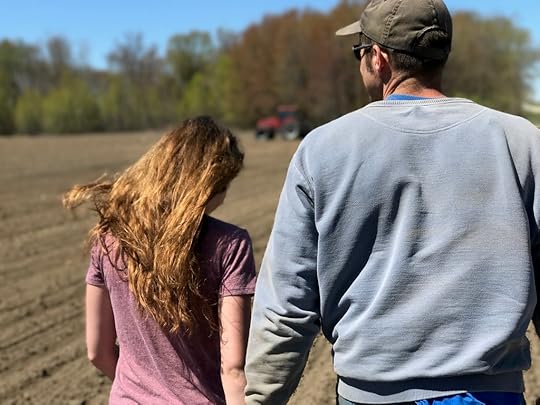




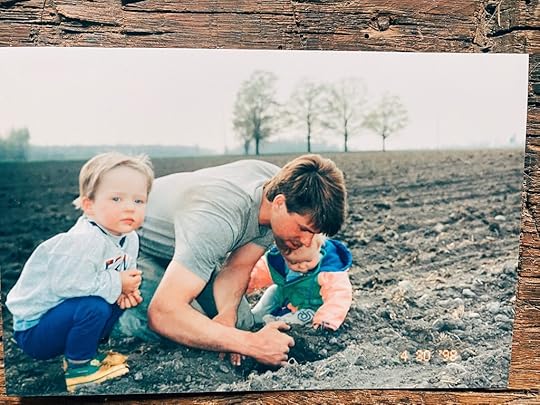

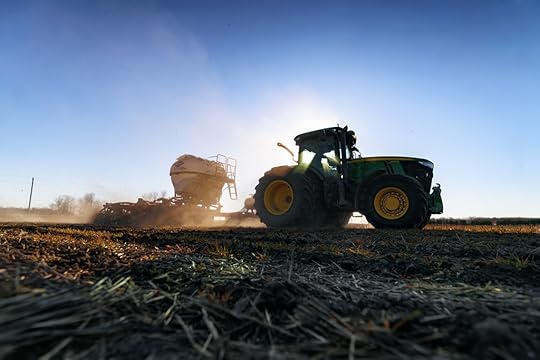 “Be the kind of worker whose work speaks her worship.”
“Be the kind of worker whose work speaks her worship.”And I look across the farm table this morning and the babies on backs are now grown men with strong backs. And that young, baby-faced boy who came here 25 years ago is now a weathered Farmer with greying stubble and crow’s feet framing wise eyes, and that cedar hedge at the edge of the field is now about 25 feet tall — and only by a mystery of God, the farmer and his wife are still here.
For 25 spins around the sun, we’ve planted and harvested and raised crops of corn, pigs, soybeans and wheat and one and a half a dozen kids and we have survived by grace alone and we have become the old people I couldn’t even imagine, and we are more scarred than I could have ever imagined, and the way through has been, and always will be, avodah.
Our work is our worship and w e work wholeheartedly not to gain more, but to give God all that we have.
Avodah is what changes our metrics of success changes how we assess, evaluate, compare, avodah changes everything.
He smiles and passes the plate of bacon down to me and that is always the only good plan: Be the kind of worker whose work speaks her worship.
He and I, no matter how old we get, will avodah till our last breath and we buy the farm again.
Pick up our story of The Broken Way and in a broken world, with a whole bunch of broken dreams and busted plans — discover the way through a brokenhearted world.
This one’s for the brave and the busted and the real and dreamers and the sufferers and the believers — and the ones who desperately need real hope.
This one’s for those who dare to take The Broken Way… into abundance.

April 28, 2021
What You Need For Your Desert Seasons (We all have them…)
When you first meet Robert Fergusson, what strikes you is his deep humility, his sincere passion and his uncommon care to to understand — both the heart of each person he is speaking to, and the heart of God — and then connect hearts to God. Robert and I have talked at length about his daily spiritual disciplines, his time in the word of God, his daily practice of writing out his eucharisteos, his thanks to God each day, his practice of never going out into the World, until he has first come into the presence of the King of this World. As a family, we have listened to many of Robert’s sermons over and over again — and we are deeply indebted to Robert’s earnest faithfulness. His latest book, Are You Getting This?, is a formidable work on how to tell the story of God to the people in your life, whose paths cross yours, to that they may come to the Cross and know what we all desperately need: the hope of a new story. A humble grace to invite the wisdom who is Robert Fergusson, who points to God’s wisdom with all that he is worth, to the farm’s front porch:
guest post by Robert Fergusson
I have often wondered why various biblical tests took place in wildernesses.
What is it about the desert that caused God to choose this location? Would an ocean not have been a suitable setting? Or what about the mountains or the forests?
With these questions in mind, I have visited various deserts—and each experience has left me transformed.
Even a short trip to a desert is strangely compelling. These places are filled with paradoxes.
“In the emptiness of the wilderness, there is only one God.”Deserts inspire worshipMy first encounter with the enormity of the Sinai desert left a deep impact on me.
Standing in the desert, I felt vulnerable and small. Rock and sand stretched for miles around me, and the dry heat was draining and relentless. The barren mountains towered above, prompting me to lift my gaze.
It is no wonder many think monotheism was birthed in the desert. Idolatry flourishes amongst fruitfulness and abundance, as the gods of Canaan demonstrate. Rivers and their creatures provide a natural focus for our adoration.
But in the emptiness of the wilderness, there is only one God.
The philosopher, Alain de Botton, describes deserts as ‘sublime places’ that engender awe and teach us our place in the world. He concludes that in the desert, ‘The sense of awe may even shade into a desire to worship’.
Perhaps that’s the reason God led Israel through the desert on the way to the Promised Land.
It played a significant role in His overall plan, which is revealed in Moses’ challenge to Pharaoh: ‘“Let my people go, so that they may worship me in the wilderness”’.
So, why did the Spirit of God lead Jesus Christ into the wilderness before His public ministry began? And why did an angel of the Lord tell Philip to travel the desert road? Deserts inspire worship.


Favorite Resource: wooden cross



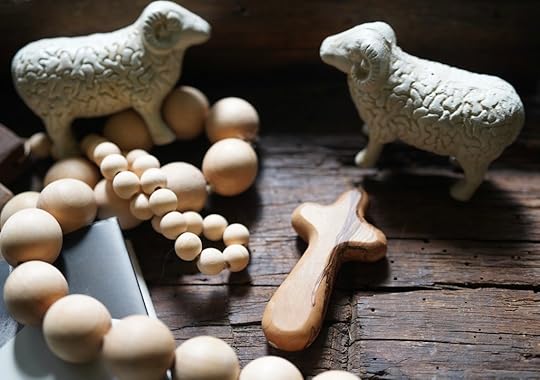
Favorite Resource: wooden cross






Not only was I overwhelmed by the shocking beauty of the Sinai desert, but I was also impacted by its severity.
A desert is not an easy place to remain for a lengthy period of time.
As we entered, we were instructed to drink plenty of water, stay together as a group and follow the guide’s directions. These may seem like simple requirements, but some members of the group immediately ignored them—and they paid the price for doing so. Many of them soon became dehydrated.
After that, it became clear that this desert was not a casual tourist spot; breaking the guide’s instructions could lead to serious consequences. He told us, ‘If you don’t do what you are told, we all must return’.
Thankfully, the guide allowed us to continue. But it was obvious we had failed a simple test.
Think about how much greater the consequences were for Israel when they entered the same desert! They, too, failed their test and were not permitted to continue. Deserts test hearts.
Deserts crucify selfIt’s not an easy feat to convince people that God wants us to have a ‘desert experience’.
Deserts are seen as barren, harsh and unforgiving—all of which are characteristics alien to the heart of God. So, why should He want us to have such an isolated experience? For some, even the word ‘wilderness’ has a negative connotation.
For instance, the phrase ‘the wilderness years’ has been used to describe a season in the life of Winston Churchill—the British Prime Minister—the years of relative anonymity between 1929 and 1939. Yet it is was the obscurity of the wilderness that prepared him for his greatest achievement.
Paul, the apostle, experienced wilderness years as well. After his dramatic conversion to Christ, he created disquiet with his self-confident debating; but after a God-ordained season in the desert, Paul returned with a new authority and understanding. The harsh anonymity of the desert brought about God’s purpose.
“A visit to a desert can challenge our priorities. Even a short trip tends to make us reconsider our values.”Paul describes the outcome of his desert experience to the Galatian church when he said, ‘I have been crucified with Christ and I no longer live, but Christ lives in me’.
Notice that his egotistical, self-confident ‘I’ had been crucified, and his unique, Christ-centred ‘me’ had been resurrected. This is the selfless character that the desert can produce within us.
W. Boyd Carpenter, a nineteenth century bishop, suggested that public speakers are to ‘deny ourselves’ in order to ‘be ourselves’. He wrote, ‘If self-expression be a true instinct, the safe avenue to self-expression lies through self-repression’. He describes the ‘desert road’ that so many of us fail to travel.
Why? Because we don’t want to deny ourselves. Yet this was the first requirement of discipleship.
Jesus said, ‘“Whoever wants to be my disciple must deny themselves and take up their cross daily and follow me.”’ Deserts crucify self.
Deserts establish prioritiesA visit to a desert can challenge our priorities. Even a short trip tends to make us reconsider our values.
My own trips to natural deserts forced me to concentrate on the matters that matter—companionship became a lifeline, prayer a necessity and food became secondary. Water was the main topic of conversation.
In a desert, wells are so vital that they became places of both power and conflict.
Beersheba, which means ‘well of oath’, is one such place of value. This was demonstrated in 1917, when the Australian Light Horse Brigade attempted to capture Beersheba during their historic charge. (Although, as I have heard it said, the Australians thought anything that included the word ‘beer’ was worth fighting for.) Failure to capture this well—and the water it promised—could have resulted in their death.
The desert heightens these life and death choices.
One of the ancient Jewish commentaries relates a possible desert scenario: ‘Two men are in a desert. One has a jug of water and the other a jug of honey’. The rabbinic ruling states that, if one jug breaks, the water must be saved, and the honey poured away. This is because honey is irrelevant if one is dying of thirst.
“My own trips to natural deserts forced me to concentrate on the matters that matter—companionship became a lifeline, prayer a necessity and food became secondary.”It is no coincidence that water is often the conversation of the prophets as they faced these desert environments. ‘My people have committed two sins: They have forsaken me, the spring of living water, and have dug their own cisterns, broken cisterns that cannot hold water’. Deserts establish priorities.
Deserts train shepherdsIn the Bible, there seems to be a tension between farmers and shepherds. The shepherds of Israel, for instance, clashed with the farmers of Egypt.
This tension is also illustrated in the story of Cain and Abel. Cain was a farmer who grew crops, whereas Abel was shepherd who tended flocks. Abel was considered to be the more godly brother. One of the reasons for attributing spirituality to shepherds is due to their geography.
Farmers settled where the soil was good and the fruit abundant; the shepherds, on the other hand, led their flocks into the wilderness. That gave them an opportunity to face fewer distractions and establish a greater reliance on God.
This is, perhaps, the reason why God, through the prophet Hosea, allured idolatrous Israel into the desert. I believe He was inviting them to return to their shepherding roots, the trade of the patriarchs, and the intimacy their fathers had enjoyed. He intended them to return to the settled farming of their vineyards.
But before that could happen, God wanted them to have a taste of dependence, the kind that only deserts could provide.
“I believe all of us could benefit from returning to a reliance on God. The kind that only a wilderness can bring.”The Jewish author, Nogah Hareuveni explains, ‘Hosea, about 200 years before Jeremiah, already saw the turning to idol worship as a consequence of the change from nomadic shepherding in the desert to an agrarian society. The temptation could be overcome only after a return to the desert, followed by a rebuilding of that settled, farming society on more faithful foundations’.
Two millennia later, in our urbanised world, many of us have forgotten the dangers and temptations of the settled society.
In our city-based theological colleges—where we train students to become pastors—we often seem to forget that the word ‘pastor’ means ‘shepherd’. A pastor is a trade and a lifestyle, not a title or a license.
I believe all of us could benefit from returning to a reliance on God. The kind that only a wilderness can bring.
Deserts train shepherds.
Robert Fergusson has been part of the teaching team at Hillsong Church for the last thirty years. He is English by birth, Australian by choice and European by taste. He is a biologist by training, but dislikes the colour green. He is a teacher by calling, but hates marking. He loves travelling, reading, photography and coffee. For over forty years he has taught people how to live in order to please God.
If Robert Fergusson were to tell you a story, whether from a church platform or in the confines of the seat next to you on an airplane, you would undoubtedly listen – and undeniably be changed. Stories pass on gathered wisdom, they reveal much about a person’s identity, convey responsibility, instil values and uncover truth. There is an art to storytelling, and priceless significance gained when you discern and absorb this age-old practice.
In Are You Getting This?, discover the story telling method that has made Robert Fergusson a sought-after teacher, memorable preacher and incessant disciple of Jesus Christ. Rediscover a love for learning and teaching, the importance of impartation and the eternal truths found in the greatest story ever told.

April 26, 2021
A Three-Lettered Word that Shapes Life
There are valleys in a life that you don’t know the way through, but a sage crosses your path and points to deep Truth of the Word that changes your map, your landscape, your direction. Scot McKnight has been one of those deeply wise voices for me, a highly respected theologian, writer and thinker, whose work has been profoundly spiritually formative in my own journey. What Scot writes, I read, I consider, I pray, I’m convicted, I repent and I’m refined and sanctified and more deeply committed to the ways of our Triune God. His latest book, A Church Called Tov, is a map for anyone who cares about how the church can reflect the goodness and heart of God. It’s a humble honor to sit with the wisdom of Scot McKnight, a servant of Christ, on our front porch today:
A seminary class discussion spun us into dizziness as we sought to know the mind of God as we talked about two megachurches whose pastors had moral collapses.
That evening a student emailed to ask if we could talk privately and soon. I stood in my driveway in the hot sun the next afternoon when he came forth with his question: “What can I do now that I don’t become like them later?”
“What I wanted my student to hear from me in that moment was that character determines behaviors.”What I wanted my student to hear from me in that moment was that character determines behaviors.
That behaviors are only manifestations of character.
That what matters most is character.
Jesus often offered verbal images to His closest followers. He taught like this so their imaginations would be stimulated.
One of His word pictures can be found in these words: “Likewise, every good tree bears good fruit, but a bad tree bears bad fruit. A good tree cannot bear bad fruit, and a bad tree cannot bear good fruit” (Matthew 7:17-18, NIV).
Jesus said it best: if you (a fruit tree) are transformed by God’s grace to become like Jesus, your actions (your fruit) will be “good.” Good, healthy, flourishing fruit trees produce good, nutrient-giving fruits that bud and bloom and fill up its skin. (As well, bad trees produce rotten fruit, and rotten fruit sickens us.)
What I wanted my student to know was that his attention should be focused on being formed into having a faithful, Jesus-loving and Christ-like character.
His preaching and leadership gifts needed to be improved, but they would only be as effective as his character allowed. Character eats gifts before breakfast.










That word “good” has a history for Jesus because it blossomed in so many stories in the Bible, our Old Testament.
“The Hebrew word Jesus had learned from His father and mother as a child, tōv, was one of the Bible’s greatest moral terms.”The Hebrew word Jesus had learned from His father and mother as a child, tōv, was one of the Bible’s greatest moral terms.
When I first spoke about tōv in a classroom the students all started using it – for what they ate for lunch, for a question a student asked, and for a response to a question that another student gave.
Tōv sometimes means beautiful – it’s used many times in the first chapter of Genesis for what God thought of His creation. Tōv means excellent and sometimes means God’s tōv design. When it summarizes a person’s life, tōv means a flourishing, faithful moral character. God is tōv, God’s design is always tōv, God’s redeemed people are to do tōv.
One of my favorite uses of this term is that it points out God’s ultimate evaluation of us. One of my friends said her older daughter pronounces at times to her younger sister “Well done!” My friend said, “That’s tōv! Is that what it means?”
Yes, and “That’s tov!” is what God says to us because of Christ’s work in us.
But tōv fruit grows on a tōv tree. Tōv fruit doesn’t drop into our hands from a bad tree. Nor do we (as trees) produce tōv fruit because we get up some morning, peer through the field and tell some tree, “Give us something tōv today!” Nor do they produce tōv fruit because we want them to. Fruit trees are planted where the sun can shine, where the rains can fall on them, and where the farmers can pick them.
“One of my favorite uses of this term is that it points out God’s ultimate evaluation of us.”This is what Jesus wanted His disciples to see and what I wanted my student to perceive: we are trees and we can produce fruit (a life that is tōv) by opening ourselves to the Spirit of God’s grace. “How do we do this?,” my student asked.
“Talk to God. Talk with God. Listen to God.” If God alone is tōv, we won’t produce tōv fruit by trying harder or making faux fruit in our woodshed. God alone is tōv, and God alone produces tōv in and through us.
You might wonder why I didn’t first say “Read your Bible.” Pastors have a bad habit of reading the Bible too often for sermons and not often enough to hear from God personally. So, I start with talking with God.
Transformation happens by proximity. I’m sure I didn’t use that term “proximity” then but it’s a good term. The more time we spend with someone the more we become like them.
“The more time we spend opened to our tōv God, the more tōv we can become.”The more time we spend opened to our tōv God, the more tōv we can become. God nurtures us into a tōv tree that produces tōv fruit.
The closer we are to the dazzling tōv of God, the more we become tōv.
Time in God’s presence, reading and relishing His Word, talking with God and learning to hear God’s utterly tōv voice, and spending time with those who know our tōv God is also how we, the trees, can become tōv trees and produce tōv fruit.
A year later I saw my student on campus sitting at a table reading his Bible, and I asked how he was doing. He said “Good.”
I smiled and as I walked away I thanked God that I got to stand in the sun for that conversation.
Scot McKnight, along with his daughter, Laura Barringer, are the authors of A Church called Tov. Scot is a professor of New Testament at Northern Seminary outside Chicago, a husband to Kris (for over 47 years!), and the father of two children (Laura and Lukas). Their book is shaped for lay person and leaders alike and pray it can help churches form cultures of goodness.
Tragically, in recent years, Christians have gotten used to revelations of abuses of many churches. Respected author and theologian Scot McKnight and former Willow Creek member Laura Barringer wrote this book to paint a pathway forward for the church.
We need a better way. The sad truth is that churches of all shapes and sizes are susceptible to abuses of power, sexual abuse, and spiritual abuse. Abuses occur most frequently when Christians neglect to create a culture that resists abuse and promotes healing, safety, and spiritual growth.
How do we keep these devastating events from repeating themselves? We need a map to get us from where we are today to where we ought to be as the body of Christ. That map is in a mysterious and beautiful little Hebrew word in Scripture that we translate “good,” the word tov.

April 24, 2021
Only the Good Stuff: Multivitamins for Your Weekend [04.24.21]
Happy, happy, happy weekend!
Let’s not let the everyday routines numb us to the miracle of living every day! Some real, down in the bones JOY to celebrate today! Links & stories 100% guaranteed to make you smile a mile wide & believe like crazy in a Good God redeeming everything. Never, ever give up…there really is hope, even for us.
Serving up only the Good Stuff for you & your people right here:
 Warren Keelan
Warren Keelan
 Warren Keelan
Warren Keelan
 Warren Keelan
Warren Keelan
 Warren Keelan
Warren Keelanjust so grateful how he’s shared his extraordinary work with us here for years…
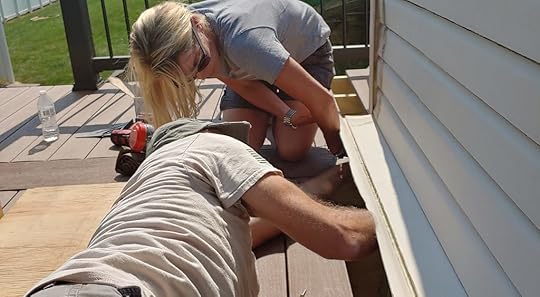
an extraordinary story of service and hope: Pennsylvania woman leaves career to serve veterans
“I don’t make a dime doing this…but I am by far the richest woman in the world.”
this, this, THIS: oh my heart… please read the story above & then click to watch?!!
“…there are no limits when it comes to dance…..everyone has a story to tell and theirs is absolutely beautiful.“
and come see what they’re doing here
so who knew? What would happen if you didn’t sleep?
Many of us are regularly sleep-deprived. This isn’t just a minor inconvenience: staying awake can be harmful. This video shows what happens to your body and brain when you skip sleep.
amazed at the wonder of this
View this post on InstagramA post shared by South Philly Barbacoa (@barbacoachef)
cheering loudly: come see what they’re doing here:
If you ever think you are out-sized? watch this!
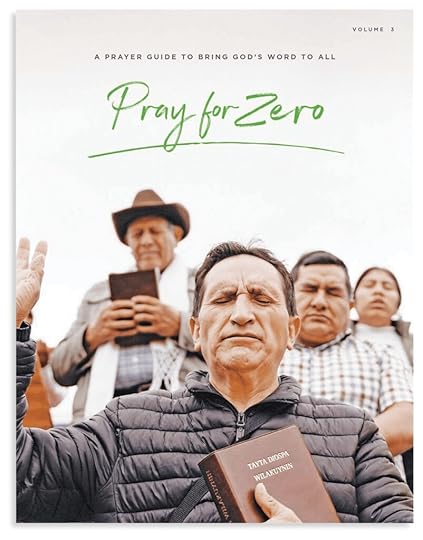
Everything You Need to Pray Strategically… for God’s Word to reach every people group in every language
A free prayer guide to bring God’s Word to all
thank you, Seed Company
Be All There… thank you, Joni Eareckson Tada
View this post on InstagramA post shared by Good News Movement (@goodnews_movement)
never, ever give up!
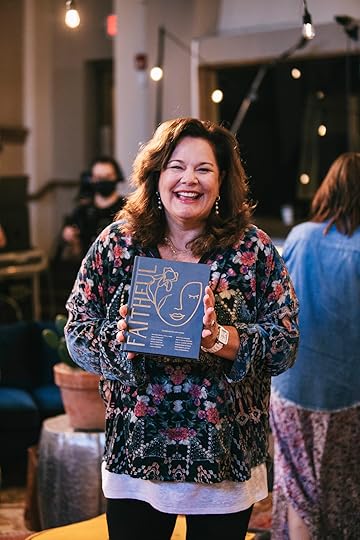

I’m counting down the days till the May 1st livestream where we can experience the The Faithful Project stories and songs LIVE for the first time! This will be a special night that you definitely won’t want to miss!
Recently, our little song, A Woman, a seeing song, a healing song, a telling song, was invited to the Today Show and Amy Grant and Ellie Holcomb got to go and speak and tell the glory story of Jesus’s rising to millions. They got to go and speak of a project that we are all part of, called The Faithful Project:
“Highlighting God’s faithfulness to women throughout Scripture and all the way to present, Faithful collects stories, lyrics, photos, and art created and curated by some of the most thought-provoking and influential Christian artists and authors of our time.”
I would absolutely love for you to Come and Join Us!?!⠀⠀ Purchase your ticket to the livestream right here!could not love this more! 82-year-old who dressed up for virtual church 52 weeks straight is pure inspiration!
“So, for 82 years, I’ve been putting on my Sunday best, and so it has become a real habit.”

Reading is growing.
Reading Is Up. That’s Good for Christians.
There are spiritual and cultural implications of deep reading.
Did you know that Israel’s tabernacle tent was designed as a symbolic garden of Eden? And that Adam and Eve were proto-priests who lived and worked in the sacred space?
In this video, we explore God’s plan for humanity to serve as royal priests over all creation and how the story of Jesus brings this priestly drama to its ultimate resolution.
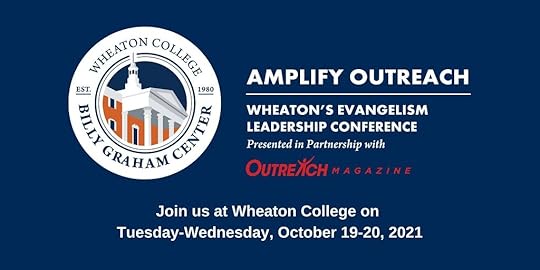
it would be a grace to meet you here:
The Wheaton College Billy Graham Center and Outreach Magazine Present
THIS YEAR’S PREMIER EVANGELISM AND OUTREACH CONFERENCE
Tuesday and Wednesday, October 19–20, 2021
Helping churches emerge from the pandemic with a focus on missiontears…a beautiful story: Incredible reunion of identical twins separated at birth

believe it: God Has Not Forgotten You
share this with someone who needs to hear? Another in the Fire
you are never, ever alone

The perfect gift from our fair trade store, Grace Crafted Home
A monthly candle subscription that 100% supports vulnerable young women in Kenya, that supports Syrian refugees in Texas who hand make every candle – and gives a lovely scent of hope, grace & love every month to your loved one.
Amen and amen… pause and ponder here
smiling: A brother and sister are trying to get “orbisculate” added to the dictionary to honor their late father, who made up the word to refer to citrus squirting in your eye
glory, glory, glory
believe it: The Power of Prayer

17 Gorgeous Photos of Gardens Around the World:
Photos of Gardens = Photos of Hope
Beyond grateful for the life saving work of Compassion International
Access to God Is “in the Spirit”: Ephesians 2:14–18
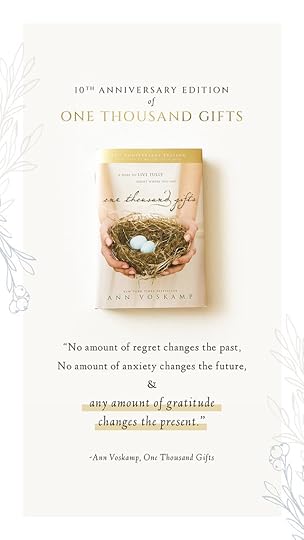

Pick up a copy of the new 10th anniversary edition of One Thousand Gifts, and count all the ways He loves you, & fall in love with Him all over again!
AND, when you do, you get an entire FREE Joy Tool Kit which includes 5 exclusive printables: a “How to Always Find Joy” Frameable, a Daily Joy Map & Planner, a Family Gratitude Gift Jar kit, a 12-Month Joy Calendar, and a Daily Joy Compass. Learn how you can get yours today!
on repeat this week: Almost Home
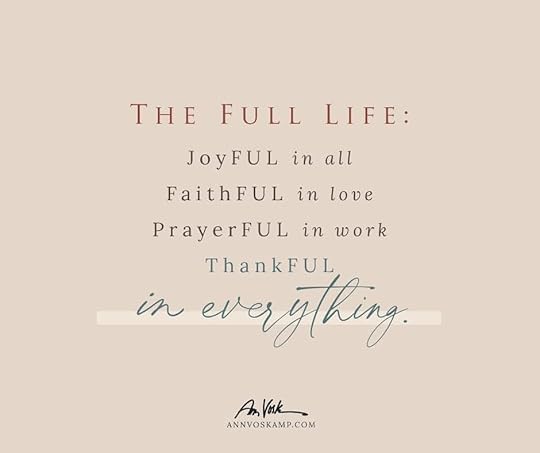
It’s the Weekend! You made it!
And today? Really, maybe we could just embrace The Full Life:
JoyFUL in all,
FaithFUL in love
PrayerFUL in work,
ThankFUL in everything–
Let’s make today *beautiFUL*!
God holds you today: “I will always show you where to go. I’ll give you a FULL LIFE” Isa.58:12MSG
[excerpted from our little Facebook family … come join us each day?]
That’s all for this weekend, friends.
Go slow. Be God-struck. Grant grace. Live Truth.
Give Thanks. Love well. Re – joy, re- joy, ‘re- joys’ again
Share Whatever Is Good.

April 21, 2021
Letting Pain Break You Open
Liuan Huska knows pain well. At age 22, she started having chronic ankle pain that spread through her body and spiraled her into depression and anxiety. We resist pain naturally, like a child who touches a hot stove and jumps back. But what if we let the pain work on us, instead of resisting? Can we trust that God feels our pain with us? It’s a grace to welcome Liuan to the farm’s front porch today…
Labor with my first child started days before his delivery.
When we finally made it to the hospital, one cold Saturday morning, I groaned intermittently, trying not to brace against the pain but rather lean into the heavy feeling of release.
I tried. But I had one big fear, which I muttered to my husband, panting: “I’m worried something is going to fall out of me!!” He replied gently, “Um . . . yeah, that’s what’s supposed to happen.”
“Having lived it, though, I can see a poetic parallel between childbirth and the rest of life.”Mid-morning, our midwife suggested Pitocin. I wanted a natural, unmedicated childbirth. I realized then that I was trying to maintain control over my body. I could either let go of control, or I could hold it in and eventually need interventions, also losing control.
We asked our midwife to give us some time, and then we prayed. I began sobbing. The tears marked an internal shift, as I finally gave in to the wild birthing process. I let the waves come. I went “floppy soggy.”
A few hours later, I gave birth to a 10-pound, 7-ounce baby, with no medical interventions.
Childbirth hurts. I don’t want to do it ever again.
Having lived it, though, I can see a poetic parallel between childbirth and the rest of life.








The suffering that is childbirth required of me a surrender which took several days to give myself to.
I had to let go of my preconceptions of birth—of how it would feel, how long it would take—and simply be present to each contraction.
I had to let go of rational control over my own body and allow an intuitive, animal consciousness to take over. The pain was not something to back away from, but to melt into. It was not my enemy, but a helpful “heavy feeling of release” that would get my baby out of my womb and into my arms.
We often approach suffering as a problem to be solved. We stumble over ourselves trying to assign meaning or purpose to tragedy.
“We often approach suffering as a problem to be solved. We stumble over ourselves trying to assign meaning or purpose to tragedy.”In the era of a deadly coronavirus, we ask: If God had the power to stop this, and God loves us so much, then why didn’t He? How could God allow this?
In our own personal tragedies too, we ask: Where was God when I needed God the most? Does God care, if He lets me go through this?
But instead of answering the whys, which can be a form of resistance, the more crucial task, I believe, is to let the suffering work on us.
We want to emerge not as brittle, shattered beings, but seedlings broken open, capable of giving and receiving life, in spite of—or perhaps because of—our suffering.
The apostle Paul speaks of suffering as part of the “groaning of creation” undergoing the pains of childbirth as we eagerly await redemption (Romans 8). Can we trust that our own suffering, whatever it may be, is taken up by God into this epic, universal labor of God’s deliverance of all creation? Can we give ourselves over to it, instead of resisting and holding back?
“Instead of answering the whys, which can be a form of resistance, the more crucial task, I believe, is to let the suffering work on us.”What is most comforting to me as I read the Gospels is not that Jesus explains the meaning of our suffering or that my pain “makes sense” in God’s cosmic economy. It’s that Jesus knows my suffering intimately and is here with me in it.
When Jesus encounters a funeral procession in Nain for a man who was a widow’s only son, He is “moved with compassion” for the widow and raises up her son (Luke 7:11-17 YLT).
When His friend Lazarus dies, Jesus sees Mary’s weeping, along with the other mourners,’ and is “greatly disturbed in spirit and deeply moved” (John 11:33).
Before conquering death, Jesus weeps.
It is so important to me that Jesus didn’t skip over this step. He didn’t jump from death to resurrection but dwelt in Holy Saturday, where so many of us spend our days.
On Holy Saturday, death has settled, and we don’t know yet when new life will come.
“He gave Himself to the suffering set before Him, and it did not break Him to pieces but rather opened Him to new life.”God’s presence is felt as a gnawing absence, a pit in our stomachs and in our souls. We yearn toward Resurrection, but our hearts are not there yet.
We need God to be here now. We need to know, as Corrie Ten Boom’s sister Betsie said, that “there is no pit so deep that He is not deeper still.”
Jesus stayed in the pit, but He was not obliterated.
He gave Himself to the suffering set before Him, and it did not break Him to pieces but rather opened Him to new life.
This is my hope—that there is light at the end of this tunnel of death.
That when I have lost everything that makes me who I am, I will still remain, because I am held up by something more solid than my self, than my body, than my very consciousness.
I am held up by a love as strong as death (Song of Solomon 8:6).
Liuan Huska is a freelance writer, covering topics of embodiment, science and faith, and culture for publications such as Christianity Today, The Christian Century, and Sojourners. She lives in the Chicago area with her husband and three little boys.
Liuan writes about her chronic pain journey in Hurting Yet Whole: Reconciling Body and Spirit in Chronic Pain and Illness. The book is for those who need to know: “Your body matters, your pain matters, you are seen and heard.” But it is also for those who walk alongside those with chronic conditions, who feel the ache of seeing a loved one whose suffering has no foreseeable end.
Visit her website to find more resources, including a discussion guide for Hurting Yet Whole and a companion set of audio meditations inviting you to come home to your own body, a holy space where God is present.

April 19, 2021
How young Billy Graham learned to roar during his early ministry
At his height, Billy Graham preached the word of God to more than two billion people on live broadcasts at his more than 400 Crusades and global conferences, and reached countless billions through television, newspapers, radio, books and film. And yet rarely has anyone ever examined his early roots in the pulpit. Billy Graham: The Man I Knew, is a detailed recounting of Graham’s extraordinary life through the eyes of fellow evangelist, best-selling author and close friend for more than a quarter-century, Greg Laurie was blessed with an insider’s view of Billy Graham that allows the reader to get a warm yet historical portrait of “America’s Preacher.” Below is an excerpt on 19-year-old Billy Graham at the start of his ministry while attending Florida Bible Institute in the late 1930s. It’s a grace to welcome Greg to the farm’s front porch today…
There is no better place to learn about ministry than in ministry—getting in the trenches and doing what needs to be done to help people come to faith and grow spiritually.
“The Lord does not usually give us a full roadmap in life. Rather, He usually leads us one step at a time.”The Bible says, “You have not, because you ask not.”
But prayer is not about getting God to do what we want Him to do. It’s not getting our will in Heaven, but rather God’s will on Earth.
The Lord prompted Billy to ask for what the Lord actually wanted Him to do.
Billy could have refused to pray (and many do), but he would have missed a tremendous open door.
The Lord does not usually give us a full roadmap in life. Rather, He usually leads us one step at a time.






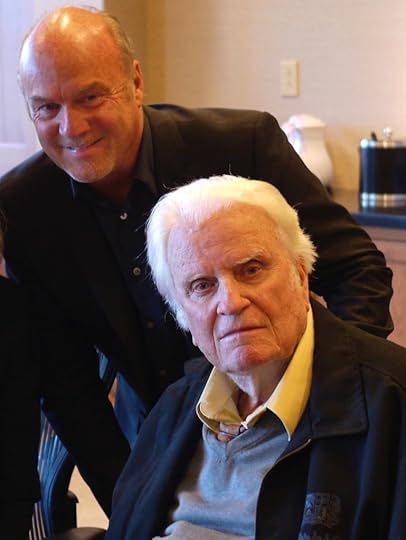
Greg Laurie with Billy Graham


Billy’s confidence soared after he spoke one day to a large group of teens at a local mission. He was asked to come back several times by the mission’s director. Billy even took it upon himself to start preaching on the street, and sometimes in front of seedy bars and rowdy saloons.
“He was a renaissance man who literally changed the world by bringing the Word of God to more people than any other living person.”When a preacher is willing to put himself in situations like that, it prepares him for what is ahead. One cannot control the reactions of random people on the street. They may applaud you, but they more than likely will ignore you, and sometimes turn on you.
How you react to all of that helps you as a communicator to get into “fighting shape” for greater battles.
Slowly but surely, word got out about Billy’s work. Invitations came trickling in.
One was from a Baptist church in Venice, a small community of about five hundred people on Florida’s Gulf Coast. This particular invitation sounded a little more unconventional than most: the congregation held its services in a converted meat market. Jesus had no problem preaching in an open field and feeding thousands with a few loaves of bread and a handful of fish, and Billy didn’t see a problem preaching here either.
This service was “meaty” however you sliced it. Of the approximately eighty-five people in the congregation, almost a third responded to Billy’s invitation to “commit their lives to Christ.” If an evangelist has a 10 percent response to his preaching, that is considered a great success. But to have a third of an audience respond? That is “revival-like”!
“Humbly, he did not believe it was his sermon or the invitation that got so many to come forward; he credited the powerful prayer preceding the afternoon service that set it all in motion.”Billy was awestruck. Humbly, he did not believe it was his sermon or the invitation that got so many to come forward; he credited the powerful prayer preceding the afternoon service that set it all in motion.
Billy told me once that he felt he had a gifting from God to give the invitation. He did not regard himself as a great preacher, though I strongly disagreed with him on that point.
Having said that, he did have a supernatural ability, or what the Bible calls “an anointing,” to call people to Christ. You can’t learn that in a classroom or from a book. It is a gift from Heaven, and Billy already had it as a young man. Though every Christian is called to share their faith, not every believer has the “gift” of the office of the evangelist.
Preachers can get discouraged—or encouraged—just like anyone else. For a businessman, a sale, a closed deal, and financial profit are yardsticks of success.
For an evangelist, success is when people come to the Lord. Our “profit margin” is much different. In my opinion, this was a milestone event for Billy. This experience and others to follow would throw some fuel on the flame of Billy Graham.
His confidence soon grew to fearlessness. He was now a crusader, a warrior for the Lord, a Joshua who would wade into any fight or any dark alley.
“His confidence soon grew to fearlessness. He was now a crusader, a warrior for the Lord, a Joshua who would wade into any fight or any dark alley.”Sundays were now reserved for Tampa’s worst: he held more than a half-dozen services that day, preaching to the down and out, the indigent and poor, and those crippled by addictions. He went back to preaching to people in prisons, trailer parks, and anywhere else there was a need with renewed vigor.
He once recalled preaching in front of a saloon on Tampa’s rowdy Franklin Street. During the day it was an entertainment and shopping district, and at night it was filled with drunks, prostitutes, and other sinners in need of the Good News.
“I stood right in the door, preaching to people sitting at the bar. The barkeeper came out and ordered me away, and I wouldn’t go,” Billy later said.
“He just shoved me down, and I half fell and half tripped into the wet street. I got my clothes messed up. I remembered the words of Jesus, and felt that I was suffering for Christ’s sake. It was quite tactless the way I went about it, zeal and no knowledge; but those were experiences that helped develop.”
Criminals, addicts, street people, and night hawks.
Billy had entered a new world, far from children and summer Bible camps, and he reveled in it.
He was Joshua reborn, a lion of God who didn’t blink or hesitate.
And he was ready to roar.
Greg Laurie, the senior pastor of Harvest Christian Fellowship, one of the largest churches in America, has written more than seventy books. Featured on the syndicated radio program A New Beginning and on a weekly television show on the Trinity Broadcasting Network, he serves on the board of directors of the Billy Graham Evangelistic Association.
Greg Laurie was one of those fortunate few, blessed with an insider’s view of Billy Graham’s world for more than two decades. As a strapping North Carolina farm boy, Graham surrendered his life to Jesus at a camp meeting led by a blustery itinerant preacher, but he never lost the mischievous twinkle in his eye or his fun-loving air.
Greg sheds light on Graham’s lesser-known struggles—such as a broken heart before he met the love of his life and a crisis of faith from which he emerged stronger than ever. From the evangelist’s private challenges and public successes to his disappointments and joys, Billy Graham: The Man I Knew provides a vivid portrait of one of history’s most remarkable Christian lives. It’s written through the eyes of a friend – a highlight reel. This book is a biopic of his shaping experiences and the people who impacted him.
[ Our humble thanks to Salem Books for their partnership in today’s devotion ]

Ann Voskamp's Blog
- Ann Voskamp's profile
- 1368 followers




